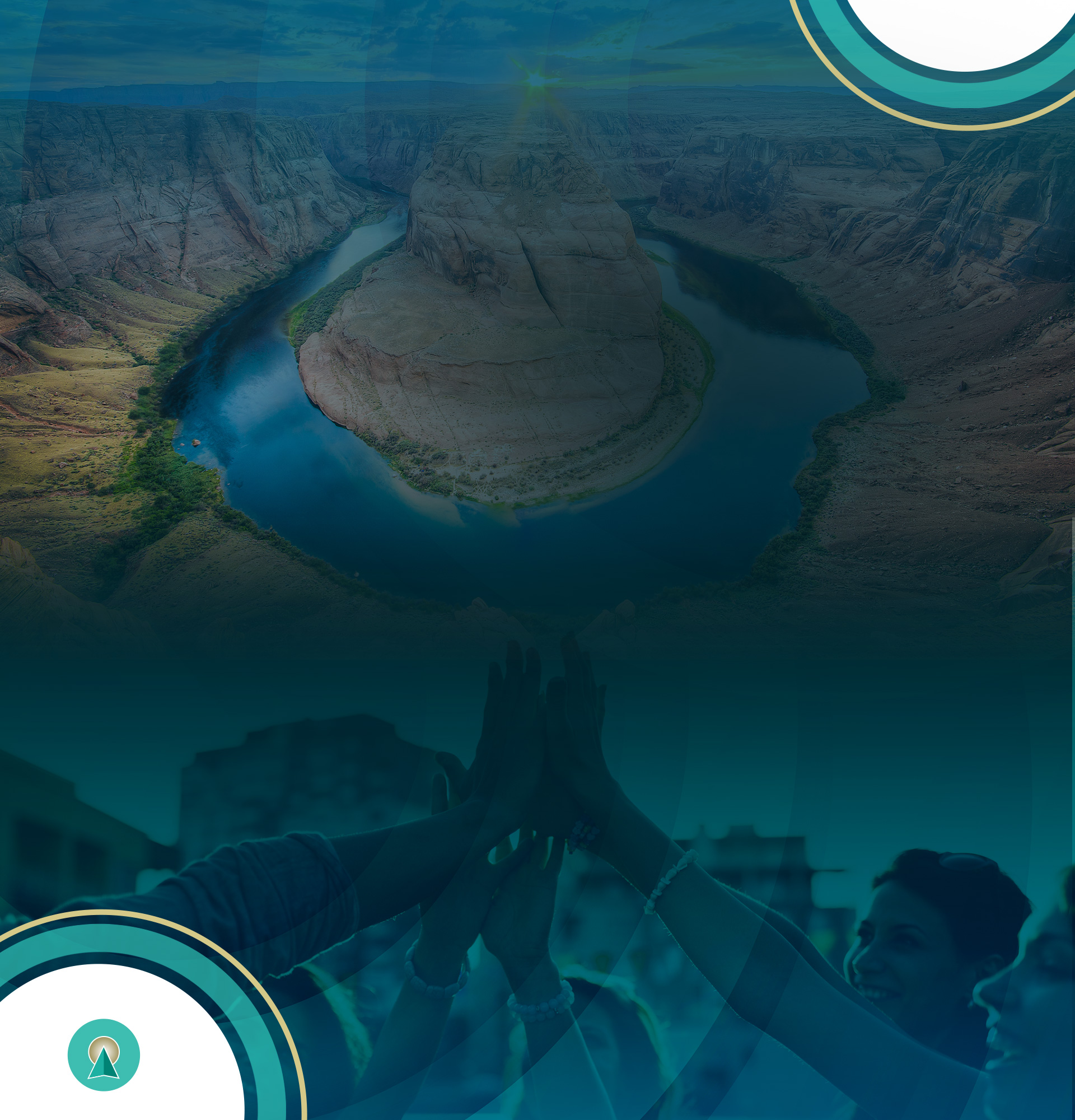

Working To Make Your Recovery Affordable By Accepting Most Insurances
Do not be discouraged if you are not seeing your insurance provider listed on our website. We take many types of insurance! Call Today: (844) 292-5010
-
 In-Network: BCBS
In-Network: BCBS -
 In-Network: Aetna
In-Network: Aetna -
 In-Network: Tricare
In-Network: Tricare -
 In-Network: Cigna
In-Network: Cigna -
 Proudly Caring for Veterans
Proudly Caring for Veterans -
 In-Network: Carelon
In-Network: Carelon -
 In-Network: MultiPlan
In-Network: MultiPlan -
 In-Network: HMC
In-Network: HMC
Tucson Drug Addiction Treatment
Comprehensive Substance Abuse Treatment Services in Southern Arizona
Decision Point Center is dedicated to helping individuals overcome substance abuse and achieve long-term recovery. Our team of addiction medicine specialists takes the time to understand each individual's unique needs and develop a personalized treatment plan tailored to their specific circumstances. We offer a range of services that address the physical, emotional, and psychological aspects of addiction.
Are you or someone you care about struggling with drug addiction in Tucson? Call Decision Point Center today at (844) 292-5010 or contact us online to take the first step toward recovery!
What is Drug Addiction?
Drug addiction, also known as substance use disorder, is a chronic and compulsive condition characterized by the continued use of drugs despite negative consequences on physical, mental, and social well-being. It is considered a brain disorder because drugs can change the brain's structure and function, leading to intense cravings and a loss of control over drug use.
Common signs of drug addiction include:
- Compulsive Drug Use: The person finds it challenging to control their drug use, often taking more significant amounts or using drugs for more extended periods than intended.
- Cravings: An intense desire or urge to use drugs, which certain situations, emotions, or environmental cues may trigger.
- Tolerance: Over time, individuals may develop a tolerance to the drug, requiring larger doses to achieve the same effect. This can lead to a dangerous cycle of escalating drug use.
- Withdrawal Symptoms: When drug use is reduced or stopped, the person experiences unpleasant physical and psychological symptoms, such as nausea, anxiety, irritability, and even seizures.
- Neglecting Responsibilities: A person struggling with drug addiction may neglect their responsibilities at work, school, or home, leading to declining performance and increased problems in personal relationships.
- Loss of Interest: Hobbies, activities, and social interactions that were once important to the person may become less interesting or abandoned entirely in favor of drug use.
- Physical and Mental Health Issues: Drug addiction can lead to a decline in physical health, including weight loss, changes in sleep patterns, and increased susceptibility to illnesses. It can also cause mental health problems like anxiety, depression, and paranoia.
- Social Withdrawal: The individual may withdraw from friends and family members, preferring to spend time with others who also use drugs or isolate themselves to avoid judgment.
- Continued Use Despite Negative Consequences: Despite experiencing adverse effects on their health, relationships, or legal issues, the person continues to use drugs.
- Stealing or Lying: To obtain drugs or hide their addiction, individuals may resort to lying or stealing from loved ones or acquaintances.
- Loss of Control: A person with drug addiction may make unsuccessful attempts to quit or cut back on drug use, often relapsing back into regular use.
The Benefits of Drug Addiction Treatment
Our drug addiction treatment program in Tucson offers numerous benefits for individuals struggling with substance use disorder. It is designed to address the physical, psychological, and social aspects of addiction, helping our patients overcome their drug dependencies and work towards a healthier, drug-free life.
Some of the key benefits of drug addiction treatment programs include:
- Professional Assessment: Treatment programs start with a comprehensive assessment of the individual's addiction, mental health, medical history, and social circumstances. This assessment helps develop personalized treatment plans tailored to the individual's needs.
- Safe and Supportive Environment: Treatment facilities provide a safe and structured environment where individuals can focus on their recovery without distractions or temptations associated with the outside world.
- Medical Supervision and Detoxification: For individuals with severe substance dependencies, a medically supervised detoxification process can help manage withdrawal symptoms safely and comfortably. Medical professionals can provide necessary medications and support during this critical phase.
- Therapeutic Interventions: Treatment programs offer various evidence-based therapies, such as cognitive-behavioral therapy (CBT), individual counseling, group therapy, family therapy, and more. These therapies help individuals understand the root causes of their addiction, develop coping mechanisms, and learn healthier ways to deal with life's challenges.
- Education and Skill-Building: Individuals receive education about addiction and its impact on the body and mind. They also learn valuable life skills to enhance resilience, communication, problem-solving, and stress management.
- Peer Support: Being in a treatment program allows individuals to connect with peers who are going through similar struggles. This sense of camaraderie and understanding can provide valuable support and motivation during the recovery process.
- Relapse Prevention: Treatment programs focus on teaching relapse prevention techniques, helping individuals recognize triggers, and developing strategies to avoid or cope with high-risk situations.
- Dual Diagnosis Treatment: Many treatment programs address co-occurring mental health disorders, as substance use disorders often occur alongside conditions like depression, anxiety, or PTSD.
- Long-Term Support: After completing an inpatient or intensive outpatient program, individuals can access ongoing support through aftercare services, such as alumni programs, counseling, support groups, and sober living arrangements.
- Improved Health and Well-being: Recovery from drug addiction can significantly improve physical health, mental well-being, and overall quality of life.
- Rebuilding Relationships: Treatment programs can help rebuild damaged relationships with family and friends, promoting healthier connections and a positive support system.
- Reduced Risk of Harm: By overcoming addiction, individuals decrease the risk of accidents, overdoses, legal issues, and other harmful consequences associated with drug abuse.
Overall, we provide a comprehensive and structured approach to recovery, providing the necessary tools, support, and guidance for individuals to achieve and maintain a drug-free life. Remember that seeking help and participating in a treatment program is a brave and essential step towards healing and reclaiming control over one's life.
Frequently Asked Questions
How long does it take to recover from drug addiction?
Recovery from drug addiction is a journey that can take time. There is no one-size-fits-all timeline, and the length of recovery depends on various factors, including the severity of addiction, individual circumstances, and the availability of support.
What are the challenges of long-term recovery?
Long-term recovery from drug addiction can be challenging. Individuals may face triggers, temptations, and setbacks. Having a strong support system and coping mechanisms to navigate these challenges is essential.
How can I help a loved one who is struggling with drug addiction?
Encourage your loved one to seek professional help. Offer support and understanding, and avoid enabling their addiction. Educate yourself about drug addiction and treatment options.
What is the role of aftercare in recovery?
Aftercare is essential for maintaining recovery. It involves ongoing support and services, such as therapy, support groups, and sober living arrangements, to help individuals stay on track and prevent relapse.
Ready to reclaim your life from drug addiction? Contact our Tucson drug addiction treatment team now and start your journey to a healthier, drug-free future!

Real Clients. Real Recoveries.
-
“Thank you for helping me navigate through one of the most difficult times in my life. I really attribute my experience while in your care to saving my life and career.”- Phil O.
-
“Doug and Wade really helped me and my loved ones through a tough time.”- J.C.
-
“Steve in admissions was extremely helpful for our family as we tried to choose a program recently.”- Paula A.
-
“Decision Point was different from the beginning. A team approach from professionals who care.”- Candace
-
“Thank you for helping me be a better person. Doug and Wade really helped me and my loved ones through a tough time.”- JD
-
“The moment I was in their hands, my transformation began. They actually cared. They actually WANTED to help me. I wasn't just another paycheck to them. They asked questions. They made a plan for me. And they followed it to the T.”- Amber B.
-
“THIS MAN MOVED MOUNTAINS to literally help save her!”- Corin C.
-
This facility deserves a special recognition. They have been around for years but the services they provide and the recovery that comes out of their facility, only seem to grow over the years. I have worked with Stephen from the admissions department and he has always gone above and beyond to make sure clients feel comfortable and get the care they need. I definitely recommend Decision Point Center!!!!- Ashley B.

We Understand You May Have Questions
Let Us Provide You With Answer
-
What Programs Are Offered?Decision Point Center is a residential treatment program that covers a variety of treatment therapies depending on what is needed for the individual.
-
Do you treat mental health?
At Decision Point Center, we are an accredited dual diagnosis treatment center. This means that we look at the underlining mental health issue that might be causing drug or alcohol addiction.
-
Do You Offer Wilderness Therapy And How Does It Work?While we do not offer Wilderness Therapy, we do offer outdoor and recreational therapy incorporating hiking, and backpacking to challenge individuals to become the confident person they know they can be. This helps with identifying internal behavior patterns, beliefs, emotions, and core issues, while providing opportunities for learning in the areas of leadership, communication, and problem-solving skills.
-
What is the process to get someone into treatment?The first step is to reach out to our team, so we can help point you in the right direction. There are probably thousands of questions that you may have about addiction treatment, and we are here to help answer any questions.



Meet Our Dedicated Team
-
 Mary Ann Zuppardo Executive Director
Mary Ann Zuppardo Executive Director -
 Dr. Terry Vaughan Medical Director, Psychiatrist
Dr. Terry Vaughan Medical Director, Psychiatrist -
 Stephen Leza Director of Admissions & Business Development
Stephen Leza Director of Admissions & Business Development -
 Lindy Howard, MA, LPC Clinical Director
Lindy Howard, MA, LPC Clinical Director -
 Luke Bailey Director of Compliance
Luke Bailey Director of Compliance -
 Deborah Pallett, P.A. Physician Assistant
Deborah Pallett, P.A. Physician Assistant -
 Dr. Julia L. Summers, LPC DBT Therapist
Dr. Julia L. Summers, LPC DBT Therapist -
 Douglas Winter MS, LISAC, CSAT Primary Therapist
Douglas Winter MS, LISAC, CSAT Primary Therapist -
 Mark Branson, MA, LPC, NCC Trauma Therapist
Mark Branson, MA, LPC, NCC Trauma Therapist -
 Troy Trout Outdoor Activity Coordinator
Troy Trout Outdoor Activity Coordinator





















